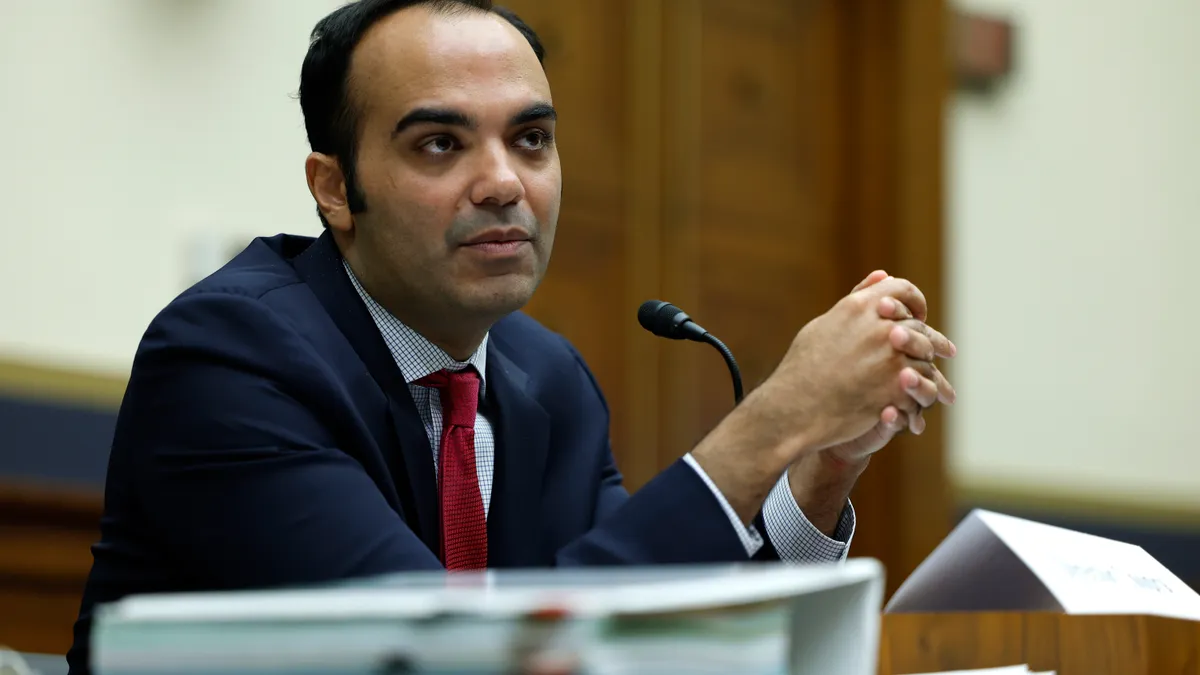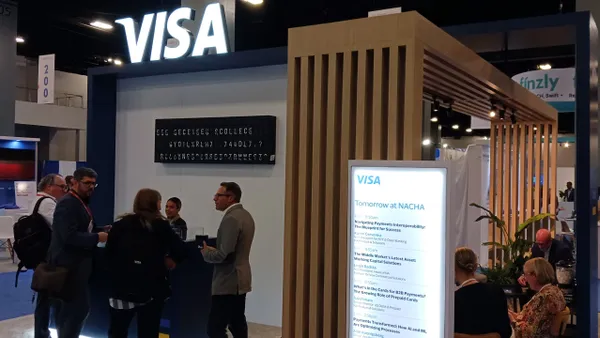Financial institutions are not working fast enough to implement ways to make consumers whole after they fall victim to peer-to-peer payments scams, Consumer Financial Protection Bureau Director Rohit Chopra told lawmakers Tuesday.
“They have been very slow to take action,” said Chopra, who was asked by Sen. Robert Menendez, D-NJ, about whether or not banks were creating frameworks to combat fraud and scams conducted on P2P payment platforms.
“They need to speed up, with respect to services like Venmo, Zelle and others,” Chopra added. “We are making it very clear that they need to make sure that the law is being followed, but also that they take responsibility for updating rules that they control. If not, we're going to continue to have more scams.”
The proliferation of generative artificial intelligence voice cloning could increase the number of consumers scammed through P2P payments platforms, Chopra said during a hearing in front of the Senate Banking Committee.
Fraud associated with Zelle, a platform owned and operated by seven of the nation’s largest banks, has been a frequent topic among Senate Banking Committee members in recent months.
Bank CEOs defended the platform during a hearing last year, after Sen. Elizabeth Warren, D-MA, called the network “unsafe” and claimed Zelle users were defrauded out of $500 million in 2021.
But banks and trade groups argue fraud makes up a small fraction of the platform’s transactions.
Disputed transactions, including allegations of fraud, make up 0.06% of Zelle transactions on average, according to the Bank Policy Institute.
While banks bear responsibility for unauthorized transactions to scammers, Democrats want to see those responsibilities extended to consumer-authorized transactions made to fraudsters.
In a letter to Chopra last year, Menendez, Warren and Sen. Jack Reed, D-RI, called for the CFPB to issue guidance that would place the burden on banks to make whole any consumers who were defrauded by such transactions.
A November Wall Street Journal article reported JPMorgan Chase, Bank of America and Wells Fargo were in advanced discussions to create standardized refund procedures for customers scammed through Zelle.
The refund rules are aimed at boosting security and trust in the platform, sources told the publication.
Referencing the report, Menendez voiced frustration that “nothing has been finalized” and called for the CFPB to “step up.”
“I hope that at some point we’re just not going to keep giving time to the industry,” Menendez said. “They have the resources to figure out what are the tools necessary, and I hope the CFPB will use all the tools at its disposal, up to and including, modernizing Regulation E to reflect the reality of the growing use of apps like Zelle.”












